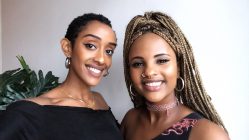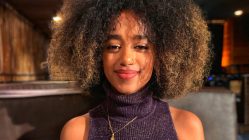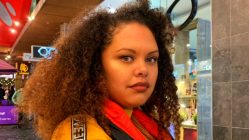Who are you? Please give us an overview of your cultural background/heritage?
I was born on Gunditjamara Country in Warrnambool in the South West of Victoria. The culture is predominantly Celtic/Anglo Australian but there is of course strong undertones of Gunditjamara culture persisting (for example, the name of the place). I’m 5th generation Australian but my lineage is Irish potato famine refugee. My maternal line arrived in Portland in 1954. My paternal arrived in 1960 and settled in Bulla, near Melbourne Airport. I’m the youngest of five and the only one born in Warrnambool. My parents moved from Melbourne the year before I was born. My upbringing was very catholic.
Do you view Australia as an inclusive society?
Australia is a big place – to state the obvious. I live in Reservoir, a very multicultural suburb. My wife is Japanese and we have two daughters. The local primary school they attend has students who speak over forty different languages. Multiculturalism is celebrated. It’s what makes Melbourne so great. The diversity of food, music and culture is the best thing about Melbourne. I’m under no illusions though, that in other places around the country, people hold negative views about non-Anglo Australian culture.
Regrettably, a vocal minority reflect a colonial Australia policy type view. There is great tension between these two world views. Identity politics exploit people’s fears and prejudice to distract them from economic exploitation. I believe the best defence is to celebrate different cultures through platforms such as Afrocentrik.
What does a commitment to diversity/multiculturalism mean to you?
Warrnambool wasn’t the most culturally diverse place to grow up and I had little exposure to anything outside of anglo/celtic “Aussie” culture with the exception of a couple of mates, one with Islander and one with Egyptian heritage.
I couldn’t wait to travel overseas. I started in Asia which included some voluntary work with Conservation International in Cambodia that opened my eyes to different perceptions. I believe that getting out of your cultural comfort zone is the best way to challenge your own bias and assumptions about life. After my time in Cambodia, I travelled to Japan where I taught English for what turned out to be three years after meeting my wife Akiko.
Returning to Australia, I have been fortunate enough to learn Indigenous culture through my friendships developed through work. I think that Aboriginal people have taught me more about cultural identity and a sense of self than anyone. I’m always curious when I meet people from other cultures.
Describe a specific situation in which you worked with a diverse group of people or person over a period of time. What did you learn from this experience?
My office currently has people from Myanmar, Japan, South Africa, England, Scotland, Colombia, India and Australian’s with European as well as Sri Lankan heritage. We were invited to Harmony day at a sister organisation up the road and will be hosting it next year. It was a great opportunity for people to share their stories. I’m always interested in people’s experiences, especially when they are so different from my own. As humans, we have more in common with each other than differences. More than anything else, you learn new perspectives on how to approach work problems. Diversity is a strength for problem solving.
Are we progressing or regressing as a society in relation to race and cultural integration? What do you see as the most challenging aspects of an increasingly diverse community?
It may feel as if we are regressing especially with all the political issues prevalent in Australia at the moment. But if we take the long view over history, we are definitely progressing. This is a short aberration in our movement towards greater respect and equality between cultures. There is certainly cultural integration which has positives and negatives I think. We are losing many Indigenous cultures and languages in the process which is tragic loss of wisdom.
I guess communication becomes more challenging in increasingly diverse communities. Even when the same language is spoken, cultural nuance can mean that communication can be taken out of context. Humour is often difficult to translate for example. My wife doesn’t understand just how hilarious I am. Keeping an open mind and recognising our commonality can address any misunderstanding. The positives far outweigh the negatives.
What fun and interesting activities/events can we do/hold to aid in bridging the cultural gap thereby creating an inclusive society for all to enjoy?
Celebrating the contribution of minority cultures, particularly through the media to reach people who might not otherwise have contact with communities outside of their own, is a powerful way to counteract negative political messages in the media. I think sport, in particular has a great reach.
Follow Danny @danny.reddan








I love your perspective of the world Danny. You are right, it all starts with getting out of our cultural comfort zone to challenge our own bias and assumptions about life. It’s in our differences that we find understanding.
Indeed!